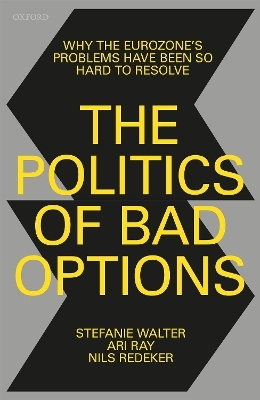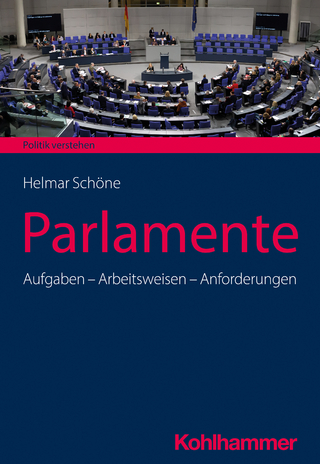
The Politics of Bad Options
Oxford University Press (Verlag)
978-0-19-885702-0 (ISBN)
This is an open access title available under the terms of a CC BY-NC-ND 4.0 International licence. It is free to read at Oxford Academic and offered as a free PDF download from OUP and selected open access locations.
Why was the Eurozone crisis so difficult to resolve? Why was it resolved in a manner in which some countries bore a much larger share of the pain than other countries? Why did no country leave the Eurozone rather than implement unprecedented austerity? Who supported and opposed the different policy options in the crisis domestically, and how did the distributive struggles among these groups shape crisis politics?
Building on macro-level statistical data, original survey data from interest groups, and qualitative comparative case studies, this book argues and shows that the answers to these questions revolve around distributive struggles about how the costs of the Eurozone crisis should be divided among countries, and within countries, among different socioeconomic groups. Together with divergent but strongly held ideas about the 'right way' to conduct economic policy and asymmetries in the distribution of power among actors, severe distributive concerns of important actors lie at the root of the difficulties of resolving the Eurozone crisis as well as the difficulties to substantially reform EMU. The book provides new insights into the politics of the Eurozone crisis by emphasizing three perspectives that have received scant attention in existing research: a comparative perspective on the Eurozone crisis by systematically comparing it to previous financial crises, an analysis of the whole range of policy options, including the ones not chosen, and a unified framework that examines crisis politics not just in deficit-debtor, but also in surplus-creditor countries.
Stefanie Walter is a Full Professor for International Relations and Political Economy at the Department of Political Science at the University of Zurich and Director of the Center for International and Comparative Studies in Zurich. Her publications include Financial Crises and the Politics of Macroeconomic Adjustments (Cambridge University Press, 2013), and she has published in numerous scholarly journals such as American Journal of Political Science, Annual Review of Political Science, European Union Politics, International Organization, and International Studies Quarterly.
Introduction
1: Bad Options and Difficult Choices in the Eurozone Crisis
2: Putting the Eurozone Crisis Experience in Perspective
3: Distributive Conflict and Interest Group Preferences in Deficit Countries
4: Crisis Politics in Deficit Countries
5: Surplus Country Vulnerability to Rebalancing: A Comparative Analysis
6: Distributive Conflict and Interest Group Preferences in Surplus Countries
7: Crisis Politics in Surplus Countries: Caught between Voter Pressure and Interest Group Stalemate
8: Conclusion
| Erscheinungsdatum | 15.01.2021 |
|---|---|
| Verlagsort | Oxford |
| Sprache | englisch |
| Maße | 153 x 232 mm |
| Gewicht | 472 g |
| Themenwelt | Sozialwissenschaften ► Politik / Verwaltung ► Politische Theorie |
| Wirtschaft ► Volkswirtschaftslehre ► Finanzwissenschaft | |
| Wirtschaft ► Volkswirtschaftslehre ► Wirtschaftspolitik | |
| ISBN-10 | 0-19-885702-0 / 0198857020 |
| ISBN-13 | 978-0-19-885702-0 / 9780198857020 |
| Zustand | Neuware |
| Haben Sie eine Frage zum Produkt? |
aus dem Bereich


